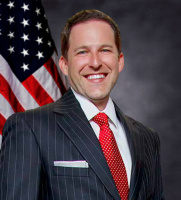Richardson DUI-DWI Lawyer, Texas
Sponsored Law Firm
-
 x
x

Click For More Info:
-
The Todd Rash Law Group
2363 Hwy. 287 N. Suite 205 Mansfield, TX 76063» view mapCriminal Defense Law Experienced Aggressive Injury Lawyers
When you need an experienced aggressive Criminal Defense attorney that delivers results. Todd Rash's record speaks for itself.
800-698-5790
Aaron Alan Herbert
✓ VERIFIED *Status is reviewed annually. For latest information visit hereFor over a decade he has shown an unwavering commitment to clients who were seriously injured by major accidents and industrial catastrophes. During t... (more)
Jay Bishop
✓ VERIFIED *Status is reviewed annually. For latest information visit hereJay Bishop proudly serves Dallas, TX and the neighboring communities in the areas of DUI-DWI and Family law.
James L Guinan
✓ VERIFIED *Status is reviewed annually. For latest information visit hereJames Guinan began practice in November 1989 and practices as a Criminal Defense and Family lawyer in Dallas, Collin, Denton and Tarrant Counties.
Michael Lai Howard
✓ VERIFIED *Status is reviewed annually. For latest information visit hereThe fact that one mistake, one bad day, or even a police officer’s mistake could completely ruin or change the trajectory of your entire life made m... (more)
Darlina Crowder
Attorney Darlina C. Crowder provides criminal defense representation for clients in the Plano, Texas area. She has been practicing law in the U.S. Dis... (more)
Hunter A. Biederman
Hunter Biederman, often referred to as the “Go to Guy for DWIs” is a founding partner of the Law Offices of Biederman & Burleson P.L.L.C., located... (more)
Kimberly Griffin Tucker
Hank Judin
Aaron Harper
FREE CONSULTATION
CONTACT Todd Rash Mansfield, TX
Todd Rash Mansfield, TX Practice AreasExpertise
Practice AreasExpertise






